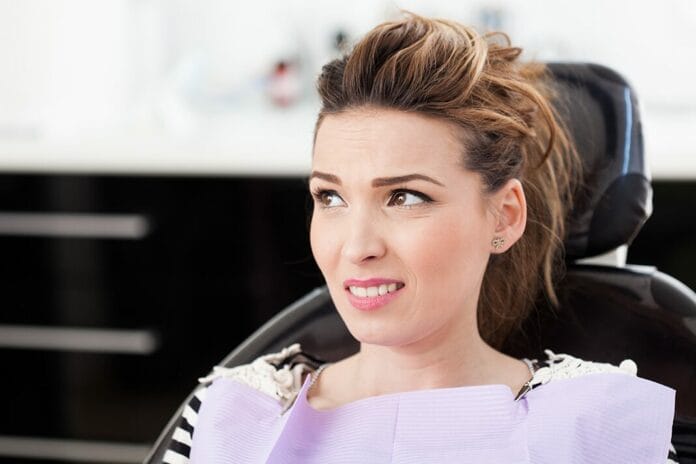As soon as the words, “I hate the dentist,” fly from my patient’s mouth and land in the pit of my soul, I immediately think of all the rebuttals I have ready to lob back.
- “Me too. Let’s get out of here.”
- “Good thing I am not the dentist.”
- “I have never been able to stand them either.”
- “Yeah, me too. No Christmas bonus again.”
Are you picking up on what I am putting down? Of course you are because, as dental clinicians, this is a common part of our workday, and you know, and I know, that “I hate the dentist” includes the hygienist. We have our proverbial guns loaded and ready to fire back, which is a natural part of being human.
We have dedicated our lives to being the best prevention specialists we can be while priding ourselves on excellent patient management. I did not go through the painstaking process of dental hygiene school and the subsequent continuing training and education to be “hated” in my workplace by the people I have sworn to serve.
On the inside, I immediately dread the next 45 to 60 minutes of my life with this person sitting in my chair. After all, they hate me and my boss. I know I am in for dirty looks, negativity, and sometimes threats. Yes, I have been threatened with being punched “if you hurt me.”
I wonder why this patient even made the appointment. No one forced them to pick up the phone, call the front desk, and request this appointment. They are a grown person who made this decision for themselves. Now, they sit angry at me. Seems reasonable, right? Insert your favorite sarcastic expression here.
Emotional Labor
Emotional labor is the behavior required to fit into the culture of our profession. It is the energy we expend to serve our patients in a way that nurtures and cultivates relationships. We are called upon to be friendly, chatty, knowledgeable, a great time manager, an immaculate steward of infection control, good at a multitude of skills, and, let’s be honest, darn cute while doing all the things.
Sometimes, it is the face we must put on to mask our dread of being “hated” attached to other unbecoming remarks, expressions, or body language from patients. When we must mold ourselves to fit a role that is not congruent with our internal feelings, this can lead to feelings of burnout and dissatisfaction.
In this instance, the adage “fake it until you make it” should be changed to “fake it and become exhausted” because of the emotional toll it takes. This type of emotional labor is called surface acting and can lead to occupational burnout.1
In my earlier years as a hygienist, I admittedly took these sorts of patient behaviors personally. It is hard not to when someone enters your “house” with negativity. I matured as a counselor and began a journey toward trying to choose curiosity over judgment. I say “trying” because it is a daily practice and reminder that while living in this human body, other humans can seem to be on constant standby to challenge this practice.
I realized that “I hate the dentist” means “I am anxious or scared out of my gourd and I don’t know how to express it.” When we are anxious, we often default to childhood defense mechanisms that no longer work for us as adults. Patients may not possess the skills to express their concerns in an adult-to-adult conversation. The default arises and serves as a shield or barrier to being vulnerable.
To the person using this tactic, it may feel logical and natural. To the person on the receiving end, it elicits feelings of defensiveness and annoyance, resulting in a power struggle or intellectual wrestling. This leaves us exhausted for the next patient and tiptoeing around feelings of burnout.
Trauma-Informed Care
On my journey from dental health as a hygienist to mental health as a counselor, I have grown to love the concept of trauma-informed care (TIC). TIC is when I hold space for each patient with the assumption that past trauma could be the catalyst for a variety of emotional responses in the dental chair.
You might think this sounds like walking on eggshells with every patient. It is quite the opposite. It is the art of opening my mind and heart to the idea that:
- The patient’s behavior is not about me.
- Trauma is widespread, and outward appearances are not a telling sign of past experiences.
- Things that happen in the dental office have the potential to trigger a patient’s past traumatic memories.
- I recognize the signs and behaviors of someone who is retraumatized in my chair.
- I have the power to change the experience for the patient with my actions and words.
When we approach every patient with a trauma-informed mindset, it eases the stress for them and us. The emotional labor I mentioned above becomes a lighter burden to carry. It also helps us get to the bottom of which patients are being cheeky due to anxiety and stress and which ones are just downright jerks.
When we often approach masked anxiety with genuine empathy and concern, we can break down the walls – at least a portion of the wall. When someone’s inappropriate behavior towards us is based on narcissism or entitlement, empathy may not remedy the situation. In these cases, it may be best to quietly serve the patient and move on without taking it personally.2
Expert Insights
Debbie Campbell, MS, LMFT, is a licensed marriage and family therapist, as well as the co-founder and director of mental health at Curis Functional Health. The nationwide counseling center focuses on whole-body wellness through physical, mental, and nutritional health.
As a seasoned therapist, Campbell has experienced her share of patients struggling with a multitude of anxieties. She says human communication is highly flawed, and people often do not say what they mean. “If they could communicate more succinctly, they might say something like, ‘I’m anxious, scared, and or have had some bad experiences with the dentist/medical providers or other adults who were supposed to protect and care for me.”3
Campbell states that these patients may also struggle with effective coping skills around these feelings of “hating the dentist” or other stressful situations.
She goes on to say, “The hygienist’s ability to see through this disguised self-disclosure and not take it personally is key. The clinician may also be able to help by taking the time to understand where the patient’s concerns lie. Explaining what will happen next and what to expect and asking the patient what they need to feel safe could be pivotal points in overcoming or reducing their fears.”3
Simple things such as checking in with the patient periodically to determine their level of stress can make a big difference. “Showing your patient that you care is the ultimate salve to their distress,” Campbell says. “The relationship is the key to feeling safe.”3
A Day in the Life
I recently had this experience in my clinical setting. The patient walked in, attitude loaded, waiting to shout it out! “I hate the dentist. I hate being here. Are you going to hurt me like everyone else?”
As someone who now works clinical part-time, my time management is not what it used to be, and beads of sweat formed under my scrub cap. When I faced her, I knew this would be a challenge and that I would run late. I was also hungry, and my attitude wasn’t exactly polished. At first, even after practicing trauma-informed care for years, my initial response was internal defensiveness. I thought, “Great, this one will be super fun.”
I then gathered myself, took a deep breath, and had a quick chat in my head about TIC and what my next move would be. Updating her health history and taking her blood pressure was loaded with negative remarks and defense mechanisms to cover her anxiety with anger and dissatisfaction with my mere existence.
I then decided to sit eye to eye, with her chair elevated slightly higher than mine. This gives the patient a sense of control and reduces the power differential between patient and clinician. I dug into my bag of motivational interviewing skills and used reflection to get to the bottom of the daggers I was dodging.
I said, “It seems like you have had bad experiences previously that caused you a lot of pain. Can you help me understand this in more depth so I can avoid what has happened in the past and make this a better experience?”
At first, she only slightly softened. She opened up and gave me more insight into her fears, though she held steadfast in her attitude. It was not until close to the end of the appointment, when she saw that I was reliable and honest with her, that she let down her walls. Now, she is on my list of “special” patients I come in only every few months to see.
The outcome of this appointment and the continuation of the patient’s fear ultimately was in my hands. As a clinician, this is a lofty responsibility. As a human, I do not always feel like taking it on. On that particular day, I am glad I did, and the extra effort did not take additional time and was worth it.
Reflecting on these encounters and the motivations behind my pursuit of health care, there are moments when reaching an empathetic attitude requires some soul-searching on my part. This is particularly true in today’s post-COVID landscape, where patients occasionally overlook our own humanity as clinicians. As we continue this shared journey, I urge you and myself to embrace curiosity and proceed with empathy.
Before you leave, check out the Today’s RDH self-study CE courses. All courses are peer-reviewed and non-sponsored to focus solely on pure education. Click here now.
Listen to the Today’s RDH Dental Hygiene Podcast Below:
References
- Jeung, D.Y., Kim, C., Chang, S.J. Emotional Labor and Burnout: A Review of the Literature. Yonsei Med J. 2018; 59(2): 187-193. https://www.ncbi.nlm.nih.gov/pmc/articles/PMC5823819/
- Schimmels, J., Cunningham, L. How Do We Move Forward with Trauma-Informed Care? J Nurse Pract. 2021; 17(4) 405-411. https://www.ncbi.nlm.nih.gov/pmc/articles/PMC9760779/
- Campbell, D. Personal interview. January 2024.












